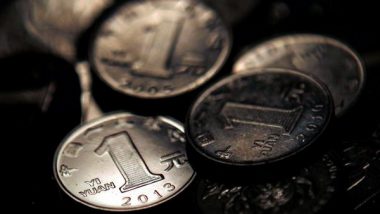Zambia [Africa], March 21 (ANI): Zambia is facing an unsustainable debt burden, and debt servicing is leaving little room for capital formation, especially funds needed for infrastructure development, reported Africa Daily Digital.
While the country is struggling to take up World Bank-suggested reforms such as restoring fiscal and long-term debt sustainability, increasing farmers' productivity and access to agricultural markets, ensuring access to energy and finance, and private sector development, it is facing a scarcity of resources, which makes the country dependent on and vulnerable to external debt.
Following this, the Zambian government has started actively seeking additional infrastructure development through Public-Private Partnership (PPP) projects. Zambia, like other indebted and capital-strapped African countries, urgently require funds to develop infrastructure to connect its mineral-rich areas to major cities and ports, as reported by Africa Daily Digital.
Zambia is under a heavy debt burden, and the post-Covid economic recovery is slow. In such a situation, it is difficult to upgrade the dilapidated road connecting its mining sites to export destinations in the lack of funds to build infrastructure, Africa Daily Digital reported.
China, which has a keen interest in the natural resources of African countries, takes this as an opportunity to make African countries to be dependent on China, and to gain control of their natural resources.
Although China's Belt and Road Initiative (BRI) is assisting many African countries in building infrastructure, the end result is a debt burden on these countries, which in turn forces them to sell their natural resources at lower prices in order to raise funds for debt repayment.
A consortium of Chinese companies recently won a bid to finance the upgrading of a 327-kilometre road connecting Zambia's capital Lusaka to Ndola in the country's Copperbelt province. The bid was won by the Consortium Macro Ocean Investment, which is made up of three Chinese companies: AVIC International Project Engineering, Zhenjiang Communications Construction Group, and China Railway Seventh Group. The consortium won the USD 650 million public-private partnership (PPP) contract to build the dual carriageway road. The Chinese companies signed a 25-year concession agreement last month, with three years for construction and 22 years for operation and maintenance rights.
According to Africa Daily Digital, the road awarded to the Macro Ocean Investment consortium connects Zambia's capital to the mineral-rich Copperbelt province and the border with the Democratic Republic of the Congo (DRC), carrying almost all of the region's road-bound mineral exports towards Tanzania.
However, critics of the Zambian government are raising concerns about the country's reliance on China for infrastructure development. They are concerned because China is Zambia's single largest lender, and with the country already facing an unsustainable debt burden, additional Chinese loans at near-commercial rates would exacerbate the problem. As of December 2021, its loan accounted for more than USD 6 billion of the country's total USD 16.8 billion, read a report in Africa Daily Digital.
Zambia's debt burden and the macroeconomic situation deteriorated rapidly after Covid-19. It was forced to seek assistance from the World Bank. On December 20, 2022, the multilateral financial institution announced the release of the second tranche of its support for Zambia's Macroeconomic Stability, Growth, and Competitiveness Programme--a USD 100 million concessional credit as part of a USD 275 million concessional development policy financing for Zambia in October 2022 in support of Zambia's reforms to restore fiscal and debt sustainability and promote private sector-led growth.
Zambia's new President, Hakaind Hichilkma, came to power in 2021, promising a 10 per cent increase in growth and a five-year plan to get the country out of its USD 12.8 billion debt mess (as estimated at the time).
Youth, who was a key component of his landslide victory over incumbent Edgar Lungu, were motivated by unemployment, political disillusionment, and economic hardship. But it was never an easy task in the past, and it isn't now.
Dealing with larger economic issues would necessitate austerity measures, which would impose additional economic burdens on people who are already suffering from unemployment and inflation. The IMF conditionality, which Zambia is committed to implementing in exchange for the multilateral institution's assistance, would be politically unpopular. These measures would include eliminating electricity and gasoline price subsidies, as well as restructuring the civil service wage bill, Africa Daily Digital reported.
In the current situation, many observers see seeking additional funds for infrastructure development from foreign countries, particularly China, as a sure recipe for disaster, as the latter provides funding at higher and commercial rates. Many of them are concerned about a repeat of what happened in Sri Lanka last year and is now happening in Pakistan this year as a result of the country's reliance on foreign debt. If Zambia does not maintain balance and caution in infrastructure development, it may be forced into a default-like situation and a saturating economic crisis.
According to a press release issued at the time of the World Bank's offer of the second tranche of support for the Macroeconomic Stability, Growth, and Competitiveness Programme, Zambia is in debt distress and urgently requires deep and comprehensive debt treatment in accordance with the Joint WB-IMF Debt Sustainability Analysis (DSA), which called for USD 8.4 billion in debt relief in 2022-25 and additional relief through 2031.
Zambia must be cautious about any new external borrowing in this situation. Rather, it should seek assistance from its largest creditor, China. Furthermore, bartering external funds in exchange for natural resources is detrimental to the country's future development.
It is always preferable for Zambia to develop and diversify its own industries and gradually strive for self-sufficiency. It is expected that if Zambia implements the economic reforms recommended by multilateral financial institutions, it will have greater access to concessional funds and attract more investment, Africa Daily Digital reported. (ANI)
(This is an unedited and auto-generated story from Syndicated News feed, LatestLY Staff may not have modified or edited the content body)













 Quickly
Quickly

















